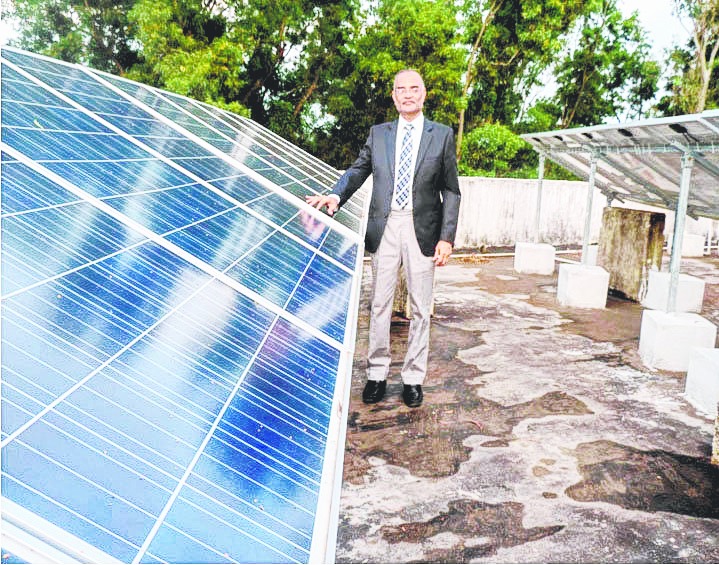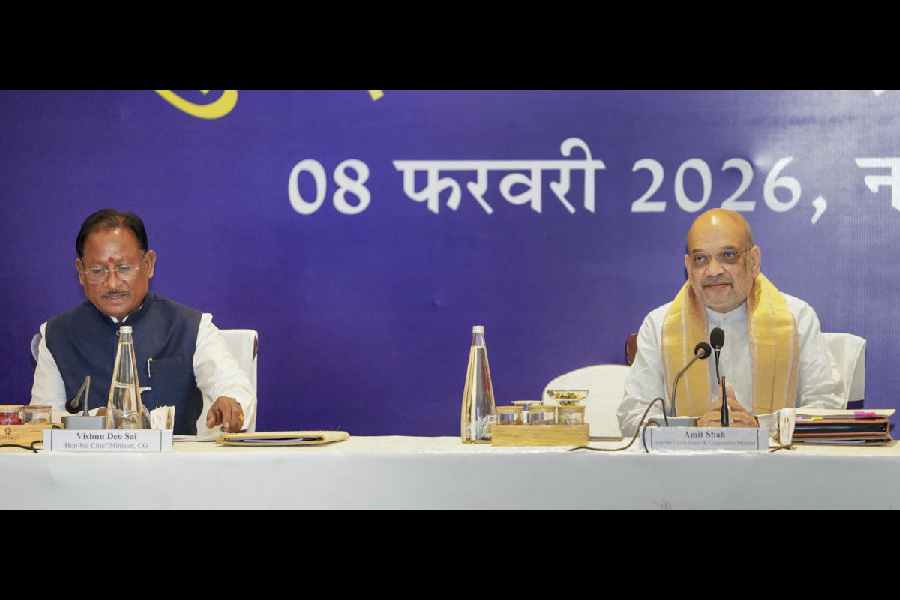
Ranchi, Sept. 24: It's rare for Jharkhand to set an example. But Khunti has with its district court, the first one to run on solar energy.
Scheduled to be inaugurated by Prime Minister Narendra Modi on October 2, the Khunti District Court is capable of producing 180KW of power of which only 64KW would be needed for the court to run. The remaining 116KW of surplus power would be for the government to use as it deemed fit.
Today, chief minister Raghubar Das visited Khunti to oversee preparations for Modi's scheduled visit to inaugurate the solar-powered district court. He was accompanied by his principal secretary Sanjay Kumar, energy secretary S.K.G. Rahate and DGP D.K. Pandey, among others.
The idea to run an entire court on solar energy was conceived by Jharkhand High Court Justice D.N. Patel, who initiated it while he was acting chief justice in 2014. He also made sure it was commissioned and not lost in official files.
The state government also took it up on a war footing and floated a tender after which a Noida-based company was chosen to set it up. Work was monitored by Justice Patel, a science graduate himself, who made frequent surprise visits to Khunti to check on its progress.
Justice Patel said he was pleased his idea had been put into action. "Just as in Gujarat where power generated by windmills in the Dwarka side is used in far away Surat, the surplus power generated at the Khunti District Court can be used in any neighbouring village in Jharkhand," he said.
Sources in the judiciary said 720 solar panels had been put up on the roof of the court and its premises to trap energy from the sun's rays. The solar power would be stored in batteries from where it would be diverted to various points.
A senior judicial officer explained the working of the Rs 2.21 crore project to The Telegraph. "The solar panels will be charged from 8am to 3pm. Once fully charged, the panels will produce electricity to charge batteries, which are equipped to retain charge for a week," he said.
The power produced would light up 390 tube lights, 325 fans, 35 computers, 35 printers, five ACs and 50 sodium vapour lights to be used at night to illuminate the court campus.
"The solar power system will generate uninterrupted and constant power for 25 years. The company which has installed the project will also provide assistance for five years from the date of commissioning and will post an engineer at Khunti to monitor its working," the judicial officer added.










